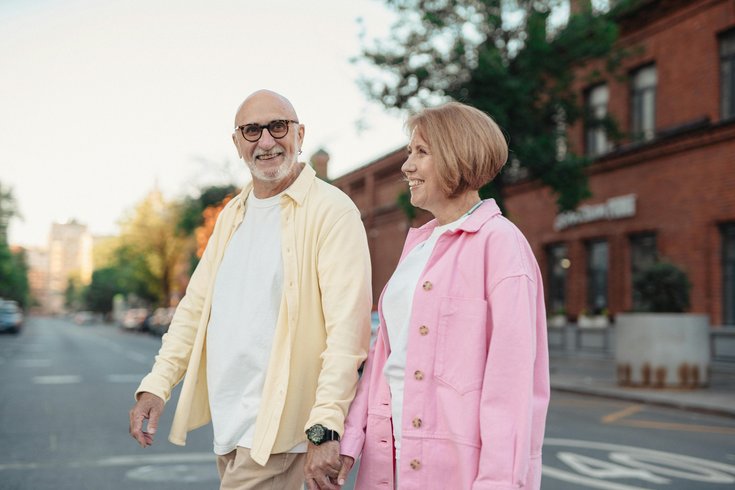
April 22, 2024
 SHVETS production/Pexels
SHVETS production/Pexels
Today's older adults believe 'old age' happens later in life than people their age thought in generations past, according to a new study.
How old does one need to be to be considered "old?" The number is rising.
Perceptions of aging have shifted in recent years, according to a study that found younger generations believe "old age" happens later in life than people their age thought in generations past.
The research, published in the American Psychological Association's Psychology and Aging journal, found that when people born in 1911 were 65 years old, they said old age started at age 71, on average. But when people born in 1956 reached 65, they said old age begins at 74.
The study examined data from more than 14,000 participants in the German Aging Survey, which included people living in Germany born between 1911 and 1974. They responded to various survey questions — including "At what age would you describe someone as old?" — up to eight times over 25 years, when they were 40 to 100 years old. Younger generations generally reported old age began later in life than older generations.
Though the study didn't explore the reasons for the shift in perception of aging, the researchers noted it could be due to people generally living longer. The life expectancy for the U.S. population in 2022 was 77.5 years, according to Centers for Disease Control and Prevention data published last month. That is 5.5 years longer than the U.S. life expectancy was 50 years ago.
"Life expectancy has increased, which might contribute to a later perceived onset of old age," study author Markus Wettstein said. "Also, some aspects of health have improved over time, so that people of a certain age who were regarded as old in the past may no longer be considered old nowadays."
Wettstein told Yahoo that older adults also have a better sense of well-being and remain healthier longer, which may give them the impression that "old age lies still ahead of them."
The study also found people push back their perception of "old age" as they get older. For instance, at age 64, the average participant said old age started at 74.7. At age 74, they said old age started at 76.8. The perceived beginning of old age increased by an average of about one year for every four to five years of actual chronological aging.
Also, women said old age started two years later than men did. People who reported being more lonely, in worse health and feeling older said old age began earlier than those who said they were less lonely, in better health and felt younger.
Though Wettstein acknowledged the trend of "postponing old age" has slowed in recent years and may not necessarily continue to grow, he said his new research may affect how and when people prepare to enter old age, as well as how people view older adults.
"It is unclear to what extent the trend towards postponing old age reflects a trend towards more positive views on older people and aging, or rather the opposite — perhaps the onset of old age is postponed because people consider being old to be an undesirable state," Wettstein said.
The study comes at a time when negative views on aging pervade society. Ageism, the discrimination against older people due to negative or inaccurate stereotypes, is ingrained in Western culture and even is considered "socially acceptable in many ways," psychologist Joann Montepare told the APA's Monitor on Psychology journal in 2023. It can harm people's careers, medical treatment, health and overall well-being. Psychologists are working to change this, by challenging ageist stereotypes and studying how systems can be restructured to stop perpetuating ageism.
The study authors said they would like to expand their research to investigate more diverse populations and non-Western countries to understand how age perceptions vary. Becca Levy, a psychology professor at Yale, told the APA that she once took a research trip to Japan to explore why people there had some of the longest lifespans in the world. She noticed "how differently" older people were treated, noting they were celebrated in media and within their families.
"People who take in more negative age beliefs tend to show worse physical, cognitive and mental health," Levi told the APA. "But the good news is that those who are exposed to or develop more positive age beliefs tend to show benefits in physical, cognitive and mental health."
Follow Franki & PhillyVoice on Twitter: @wordsbyfranki
| @thePhillyVoice
Like us on Facebook: PhillyVoice
Have a news tip? Let us know.